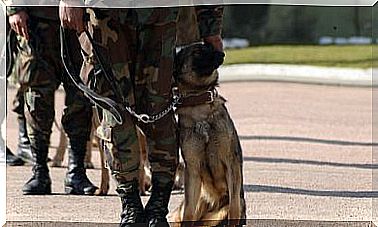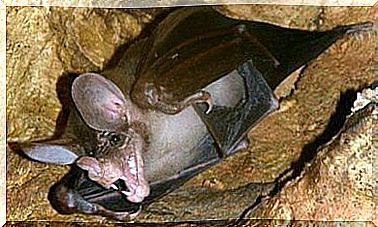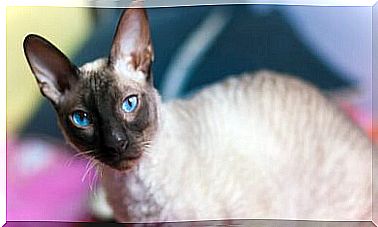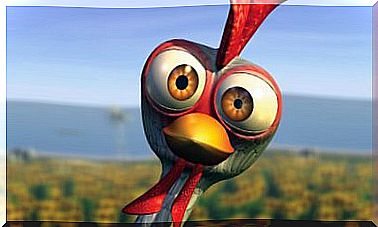Mourning For A Pet: Is It The Same As For A Person?

When a dog or cat dies, most owners experience the same feelings as if they lost a loved one. Sleep disorders, eating problems or depression are more than common. Mourning for a pet in many cases is higher than that for a person. Find out more in this article.
Mourning a pet: a painful moment
People who have suffered the death of a dog or cat know that the feeling is really painful. It can be even worse than when a family member passes away. The vast majority of pet owners experience certain disorders in sleep, eating, or daily life after the loss of their best friend.

Additionally, many report having trouble concentrating, low energy, depression, and apathy. Even couples who do not have children and consider their dog or cat as “a baby” are more likely to divorce or separate after the death of the animal.
Believe the contrary, cat owners feel more sorry when their pets die than dog owners. Why? Because cats are raised in smaller spaces. In addition, they are said to have a spiritual connection to people.
Elderly and children most vulnerable to mourning for a pet
Although the impact that the death of a dog or cat can generate will depend on the personality of each one, the truth is that this event is suffered by two groups of people: the elderly and children.
In the first case, it is likely that the animal has been their only company since they were widowed or their children left home. In the second, even if they do not show it, many children have already been born with a pet at home and it is difficult for them to overcome that loss.
As with the death of any loved one, it is essential to go through the process of mourning and mourning for a pet. That is, complete a cycle from when the pet is buried until we remember it fondly.
Grieve for a pet
One of the first reactions of a person when their dog or cat dies is not understanding the situation well. Although the animal has lived many years or suffered a long illness (which supposedly prepares us for the natural outcome), we still suffer when it is no longer by our side.
After the pet has been buried or cremated, it is normal to feel its presence around us. Hearing their paws next to the bed or their meows from the door is very common. Some say that their souls are still there to tell us that everything will be fine. Others claim that it is a custom of the senses to those sounds.
In everyday situations, where the animal shared moments with us, it is where we most feel the pain for its death. When we get home from work, no one waits for us wagging the tail. We also do not feel that purr on winter days, we lack someone to play with in the park, etc.
With the passage of time, the memories of that wonderful being no longer hurt us so much or make us cry. It is easier to look at a photograph of our pet. Or talk about their antics without feeling so sorry.
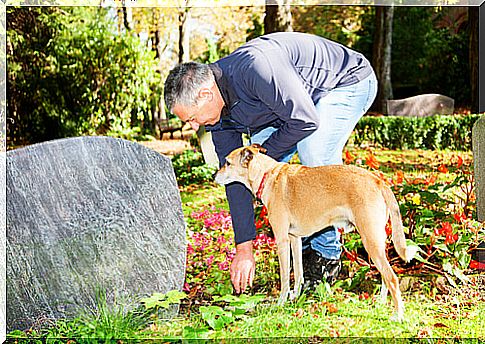
If our pet is buried in an animal cemetery, we can go visit his grave and bring him toys in the early days. Otherwise, we can post photos in a virtual cemetery (there are many on the internet) and leave you a message. These sites are good for understanding that we are not the only ones going through the grieving stage.
It is recommended to bring another dog or cat home once we have overcome the loss. Many people rush out to buy or adopt another pet. They believe that it is the best way to forget the previous one. However, this can backfire. Why? Because we will not be in a position to take charge of that life. In addition, we will continually compare it with the deceased animal, trying to make it resemble him in everything.
